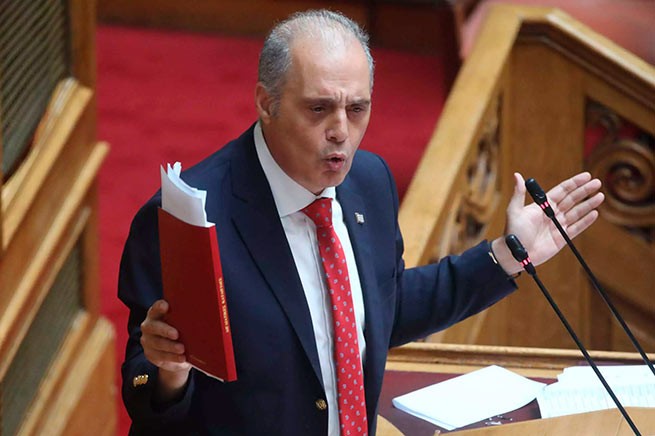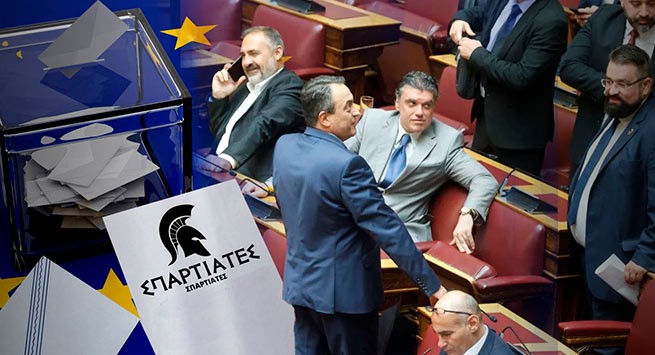Greek parliamentarians today voted to criminalize the spread of fake news about the coronavirus.
The minimum sentence is three months. The reason for it will be false information disseminated “that can cause anxiety or fear among citizens or shake public confidence in the national economy, the country’s defense or public health.”
The ruling New Democracy Party voted for the amendments to the existing Criminal Code. Representatives of the “Movement for Change” (KINAL) abstained from voting, other opposition parties did not support the amendments to the legislation and voted against. Article 191, which existed earlier in the Greek Criminal Code, provided for punishment from 10 days to 3 years or a fine for “spreading false news”, which:
“cause fear in an indefinite number of people or in a certain circle or category of persons who, therefore, are forced to take unplanned actions or cancel them, risking damage to the economy, tourism or defense of the country, or disrupting its international relations.”
The new edition does not mention damage to tourism, and this part of the article of the Criminal Code now states that the punishment is provided for “spreading false news”,
“capable of causing anxiety or fear among citizens or shaking public confidence in the national economy, the country’s defense or public health. It is punishable by at least three months’ imprisonment and a fine.”
The new article also provides for criminal liability of the publisher or owner of a media outlet if fake news is disseminated in this way:
“If the act is repeated, through the press or the Internet, the perpetrator is liable to imprisonment for at least six months and a fine. The same penalty will be borne by the owner or publisher of the media.”
Journalists talk about the violation of freedom of speech, lawyers note the increased punishment. And the explanatory note to the bill says that the appearance of “public health” in it in the current reality is necessary:
“… is a necessary addition as there was widespread news, concern and panic among citizens during the COVID-19 pandemic, especially on public health issues.”
In the debate over the adoption of the amendment, the deputies pointed out that public discussions and public expression of their own opinions on current topics can be classified as fake news, and the punishment can follow simply for negative criticism. For example, about the mandatory vaccination. The MPs stressed that, on the contrary, it is necessary to encourage public debate, which will not allow criminalizing the opposite point of view.
In addition to false news about coronavirus and vaccinations, fakes about the climate crisis and the environment will be criminalized. Opponents of the amendment believe that it will allow large private companies to prosecute citizens for publications on environmental crimes:
“The proposed provision introduces more evaluative, misinterpreted and vague judgments, which in many cases may lead to its unequal and selective application.”
Discussion of the bill lasted for several weeks. ESIEA, the largest journalistic union, the Athens Daily Editors’ Union, called on the Justice Ministry to withdraw changes to the article about the spread of fakes before the vote. He promised to provide assistance to any journalist who faces the consequences of the law, “to underline the unconstitutionality of this provision if it is voted unchanged.” The statement reads:
“Our association has informed both the EFJ (European Federation of Journalists) and the IFJ (International Federation of Journalists), who represent us at the European and international level, and intends to contact the European Parliament to discuss this issue.”






More Stories
Greece must transfer the Patriot PAC-3 system to Ukraine with US “guarantees” against the Turkish threat
How will the confiscation of Russian assets affect the global financial system?
TikTok ban in the USA: Americans force the owner company to sell its assets